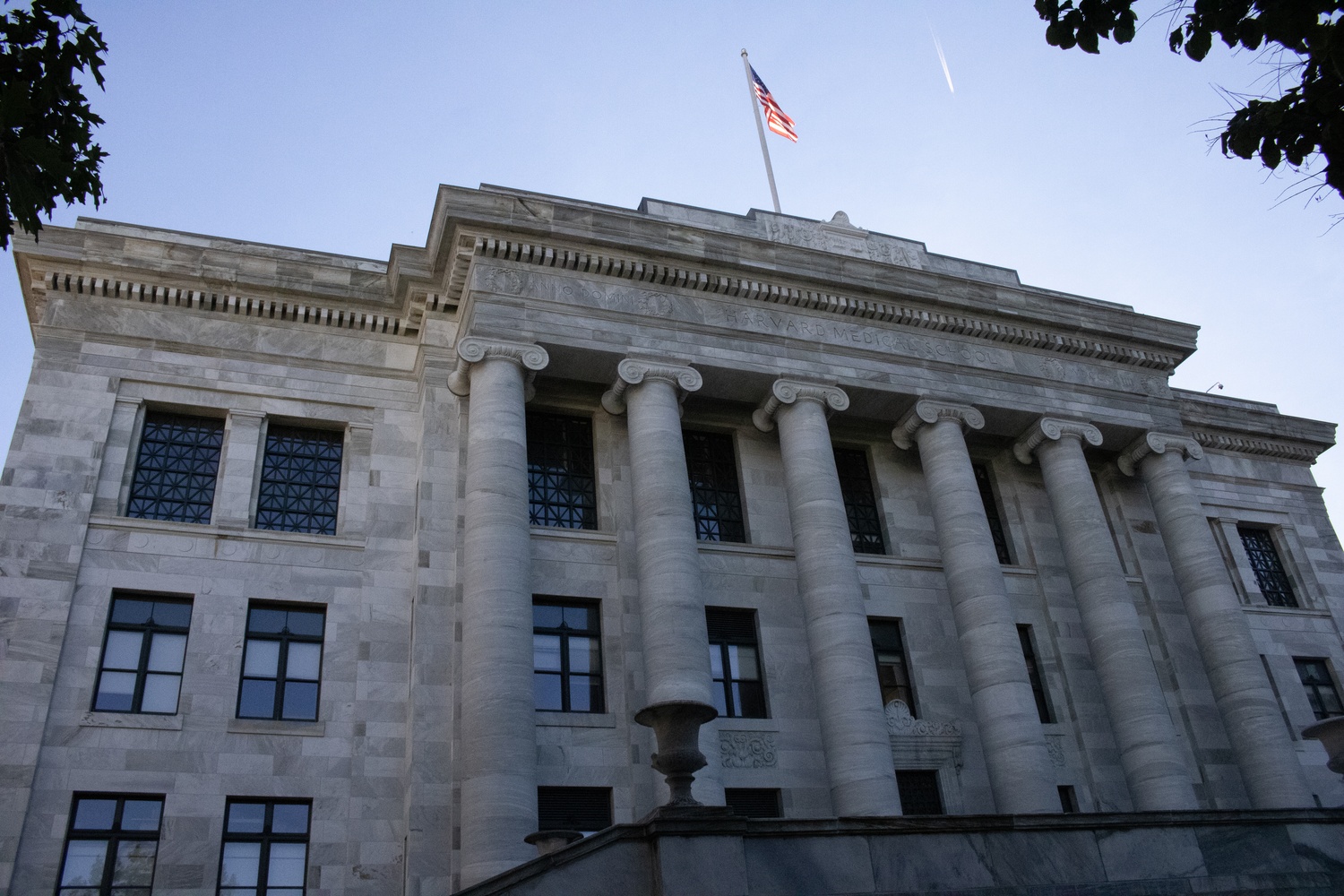
News
Summers Will Not Finish Semester of Teaching as Harvard Investigates Epstein Ties

News
Harvard College Students Report Favoring Divestment from Israel in HUA Survey

News
‘He Should Resign’: Harvard Undergrads Take Hard Line Against Summers Over Epstein Scandal

News
Harvard To Launch New Investigation Into Epstein’s Ties to Summers, Other University Affiliates

News
Harvard Students To Vote on Divestment From Israel in Inaugural HUA Election Survey
3 Harvard Professors Win 2025 Breakthrough Prizes

Three Harvard professors were awarded 2025 Breakthrough Prizes, one of the most prestigious prizes in science, on April 5.
Awarded annually, the Breakthrough Prize, often referred to as the “Oscars of Science,” seeks to “celebrate the wonders of our scientific age.” The foundation doled out $3 million to each winner in the Life Sciences, Fundamental Physics, and Mathematics categories this year.
The awards are sponsored by Google co-founder Sergey Brin, Meta CEO Mark E. Zuckerberg, Priscilla Chan ‘07, Julia and Yuri Milner, and 23andMe co-founder Anne Wojcicki.
Alberto Ascherio, a professor at the Harvard T.H. Chan School of Public Health and Harvard Medical School, was honored for his work establishing Epstein-Barr virus infection as a leading cause of multiple sclerosis following more than two decades of research — the first concrete evidence of a cause of the disease.
“Discovery that the virus is most likely behind this suggests that instead of targeting the cells, we could target the virus directly,” Ascherio said.
This discovery reduces the risk of immunosuppression, he said, and acts as “a blueprint” for examining how viral infections are related to diseases such as Alzheimer’s or Lou Gehrig’s disease.
HMS professor Joel F. Habener received the award for the discovery and categorization of the GLP-1 hormone — a hormone glucagon-like peptide-1 — which has led to the development of treatments for type 2 diabetes and obesity, as well as pathways for treating other metabolic conditions including heart failure and fatty liver disease.
“What I was doing was what we call ‘discovery research,’ and what mainly drives that is curiosity,” Habener said. “You remain open-minded and think about the mechanisms and regulations. It’s like a crossword puzzle.”
Habener said the potential of GLP-1 extends far past those treatments, with possible applications for “neurodegenerative diseases like Parkinson’s disease and Alzheimer’s disease.”
David R. Liu, professor at the Broad Institute and Harvard and director of the Merkin Institute for Transformative Technologies in Healthcare, developed a revolutionary gene editing platform for base editing and prime editing in 2016, which can correct disease-causing genetic variations.
The technology was used for the first-ever correction of a disease-causing mutation in patients and has been employed in thousands of laboratories around the world.
“If you told me in, let’s say, 2010, 15 years ago, that there would be a laboratory engineered molecular machine that could convert one DNA base into another or that could rewrite entire stretches into DNA to do true search and replace gene editing, I wouldn’t have believed you,” Liu said.
“Frankly, I would have said that sounds like science fiction,” Liu added.
The researchers also acknowledged the work of their collaborators and teams in their research. Ascherio described his research as a “network of collaboration” built upon persistence and confidence.
Liu said “the lion’s share of the work, and therefore the lion’s share of the credit” goes to the team of postdocs, graduate students, undergraduates, staff, collaborators, and funding from federal agencies and philanthropists
“It’s very important to mention how much of a team effort and how much of a village it takes to do something like this,” Liu added.
Three other Harvard faculty members were recognized with the Breakthrough Prize in Fundamental Physics, alongside more than 13,000 researchers, for their work on the ATLAS general-purpose participle physics experiment at the European Organization for Nuclear Research, known as CERN. The prize winners include Physics professors Melissa Franklin, Masahiro Morii, and John Huth.
The award ceremony in Santa Monica was a star-studded event. The awards were opened by Emmy Award winner James Corden, and announcers and performers included Katy Perry, Gwenyth Paltrow, Gal Gadot, and Mark Zuckerberg.
The Breakthrough Prize Awards also highlighted the real-life impacts of the winners’ scientific advancements. When honoring Liu, the Breakthrough Awards invited the first patient treated with Liu’s base editing technology, who was 13 years old when she was told she would die of T-cell leukemia, to tell her story onstage.
Liu said he was “in tears” hearing her speak.
“Science, guided by empathy, can transform lives,” Liu said. “It’s a message that’s really sorely needed right now in our country.”
—Staff writer Kaitlyn Y. Choi can be reached at kaitlyn.choi@thecrimson.com.
—Staff writer Sohum M. Sukhatankar can be reached at sohum.sukhatankar@thecrimson.com. Follow him on X @ssukhatankar06.
Want to keep up with breaking news? Subscribe to our email newsletter.
